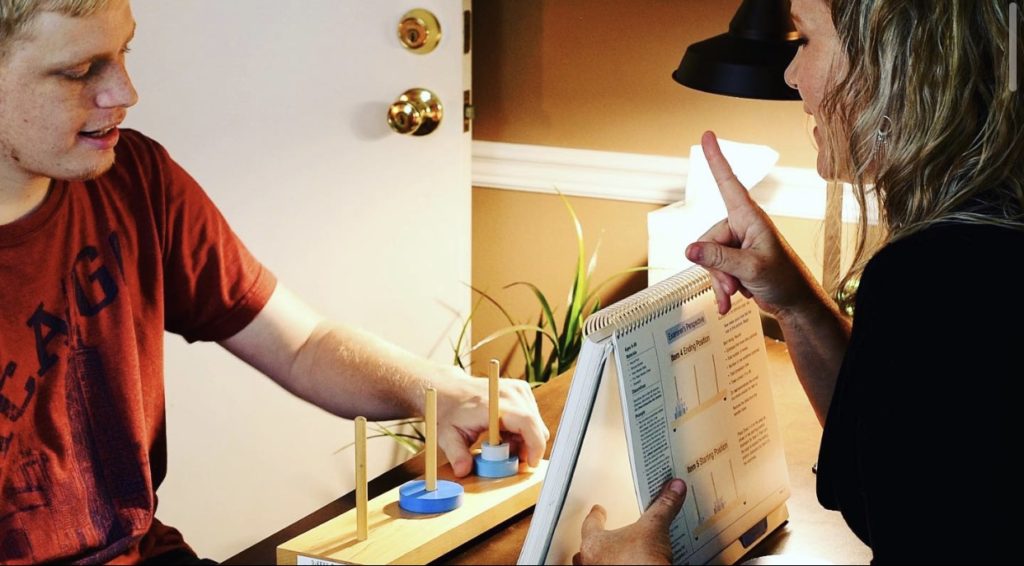You’ve decided that an assessment will be critical for your child’s future: to better understand your child and get them the help that they need. But how do you communicate this to your child? While every family may have a different variation on this conversation, here are some ideas and tips to get you started, from Dr. Liz.
The Basics
The purpose of an assessment is to learn about how you learn. This helps teachers know how to teach you, it helps parents know the best ways to support you, helps employers learn how to accomodate you, and helps you know how to advocate for yourself. A basic way to explain the assessment to your child may sound like this: I’ve noticed this year seems tough for you. Even though you’re doing so well in ___, I notice ___ is getting really hard, but I’m not sure why. I’ve been thinking that if we knew more about how you learn, your teachers and I could do a better job teaching you. Last week, we met with a person who could help us find a way to make school easier for you. We’d like you to work with her for a few sessions to help us figure out what we can do differently.
A Different Kind of Doctor’s Appointment
Children may have all kinds of ideas of what “going to the doctor” looks like. It’s important to let them know that they are not sick, and there is nothing wrong with them. Rather, this is a place where you get to learn about your brain and how it works. Also, there will be no shots and no gross medicines at this doctor’s office.Here’s what will happen: Dr. Carmichael will do different activities with you to figure out how your mind is working, how you learn best, where your strengths are, and why some things are hard right now. Some will be fun, some will be easy and some will challenge you. If there is anything that you are worried or concerned about, we should let Dr. Carmichael know so that she can help us find a solution. Often, this is just like a day at school, and your child might be asked to read, write, do math, draw, look at pictures, put blocks together, retell a story, remember pictures, answer questions, attend to a test on a computer, or talk about feelings or friendships. For young children, we will play together to assess their social interaction and social communication skills.
Tip #1: Use your child’s words to describe the problem
Many children know there is a problem, even long before we do. However, they may not use our same words to describe what is difficult, which can lead to disagreement about what the actual problem is. Here are some examples of adult and child perspectives:
Adult view of the problem Child’s view of the problem
My child is failing his math tests because he doesn’t understand it. My math teacher doesn’t like me.
My child won’t do her homework and procrastinates until the last minute. My parents are always nagging me!
My child is impulsive and shouts out in class. My teacher is always getting me in trouble for no reason.
My child needs more time than others. I hate school. It’s too hard.
You have decided to have an assessment to help solve a problem. Your child will be invested in the process if we can identify that problem they wish to solve as well. By using their words, we let them know that we understand where they are coming from, and that this assessment is truly to help them.
Here are some examples of how you might introduce the idea of an assessment using your child’s view:
I’ve noticed that you really don’t like your math teacher this year. I’d like to see if we could figure out why it’s been so hard.
I’ve noticed that we are in a bad nagging cycle around homework. I know you don’t like it and I don’t like it either. I wonder if there’s a way we can break out of it.
I’ve noticed you’re getting in trouble a lot this year and it doesn’t seem to make sense. I wonder if there’s a way we can figure it out together.
I heard you say that you hate school, and I can totally see why! Let’s see if there’s a way to change that.
Tip #2: Talk over ice cream
When children find out they have to go to the doctor, a common thought is, “what’s wrong with me?!” Some children may also worry that they are in trouble or they have done something wrong. It is very important that they know this is not the case. For this reason, I recommend talking to your child in a place where it is obvious that there is nothing wrong and they are not in trouble. Having a bowl of ice cream, taking the dog for a walk, or playing catch are all good ways to have a conversation without it feeling too “serious”. Your child may have many questions about the process that you don’t know how to answer. That’s great news – if your child comes in with questions, it will help them get curious about the process and give us a great starting point as we begin working together.
Click HERE if you would like your child to see pictures of Dr. Carmichael and her office and to read a letter from her.

